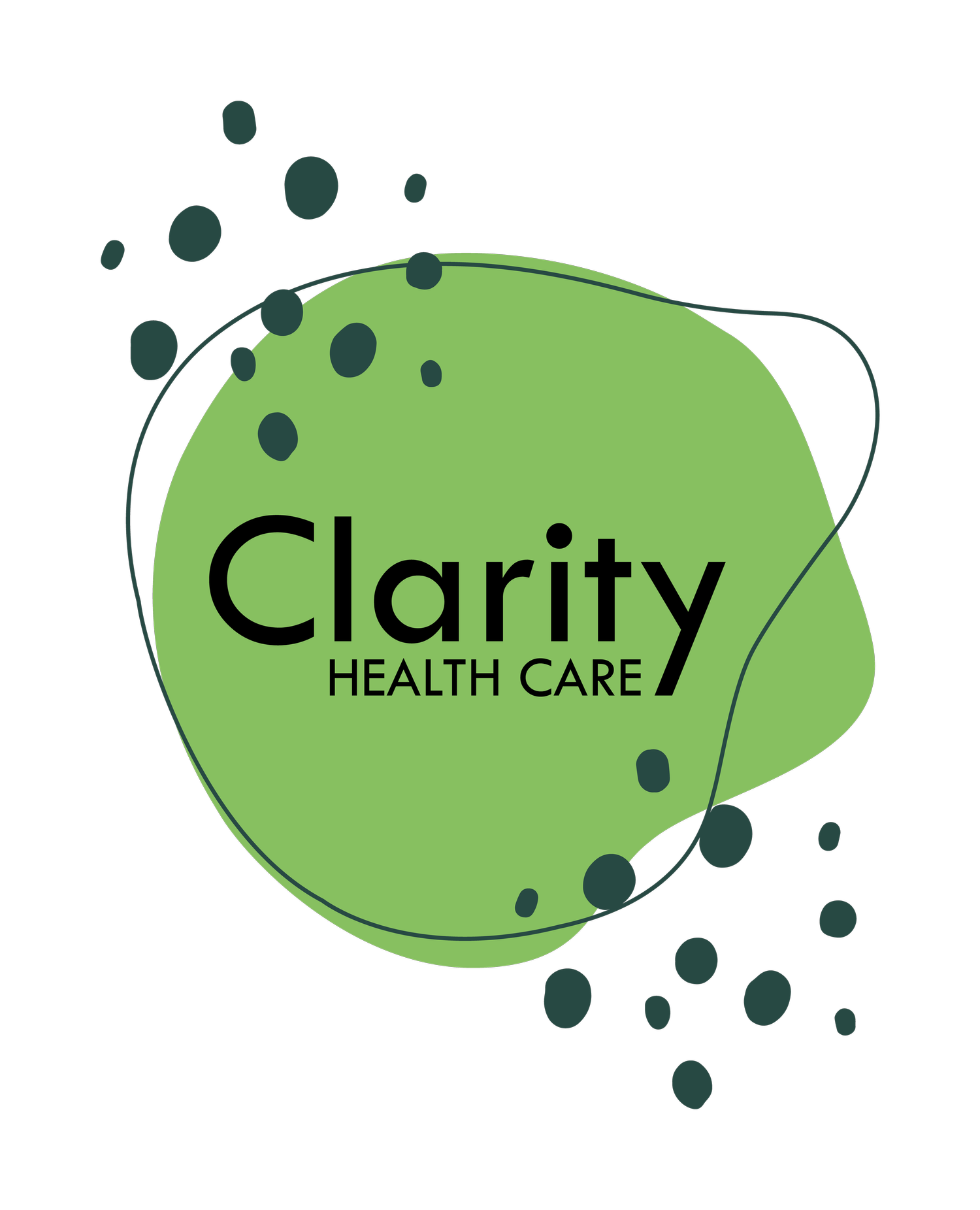Building Emotional Resilience
Building Resilience and Emotional Well-Being Using a Growth Mindset
Written by Aimee Oliveri (Clinical Psychologist & Mental Health Content Creator) in Collaboration with Clarity Health Care
What is Resilience
The most commonly held definition of resilience is: “The ability to bounce back from challenging or stressful situations.”
However, this definition tends to present resilience as a static quality – something one either possesses or lacks. Moreover, this definition is very outcome focused, suggesting that one must "rebound" or "thrive" in the face of adversity to qualify as resilient. This binary perspective oversimplifies the intricate nature of resilience.
In this blog post, our aim is to offer a more comprehensive understanding of resilience; One that acknowledges its multidimensional nature. We will explore how adopting a holistic perspective on resilience, along with concepts like a growth mindset, can empower individuals to harness their resilience for personal growth and development.
A Holistic Definition of Resilience:
As noted earlier, the current definition of resilience falls short by depicting resilience as an either-or characteristic. For instance, applying this definition to someone in the midst of grief might erroneously suggest they lack resilience because they are grappling with their emotions and have not yet "rebounded" or "emerged" from their grief. It sounds ridiculous when you put it like that right? We know grief is a process.
So how can we better capture resilience?
A more holistic definition reframes resilience as a skill or quality that can be nurtured, emphasising its role as a process rather than outcome.
A holistic definition acknowledges that life's challenges are not pass-fail tests. They are opportunities for learning, growth, and transformation.
Thus, resilience is a willingness to persevere and grow in the face of adversity, and is a quality that can be cultivated, nurtured, and developed as we journey through life's ups and downs.
Why Does Resilience Matter?
Resilience is important because it directly impacts our well-being. Imagine a scenario where you're faced with a stressful situation, like a job loss or a health issue. Resilience acts like a shield. It doesn't make life's challenges disappear, but it helps you navigate them more effectively.
Here are some of the key benefits of resilience:
Improved Mental Health: People who practice resilience tend to have better mental health outcomes. They are more equipped to manage stress, anxiety, and depression, and they have a more balanced outlook on life.
Greater Adaptability: Resilience enables individuals to adapt more effectively to changing circumstances and uncertainties.
Effective Problem Solving: People who practice resilience approach challenges with a problem-solving mindset, leading to more successful outcomes.
Stronger Relationships: Resilience enhances communication and conflict management skills, improving interpersonal relationships.
Increased Self-Confidence: Navigating adversity with a resilient mindset boosts self-confidence, instilling a sense of empowerment and self-worth.
Cultivating Resilience with a Growth Mindset
Our mindset wields a profound influence over our behaviour and overall wellbeing. If we have a fixed mindset which assumes that our qualities and abilities are static, we will struggle with motivation and holding hope. Conversely, a growth mindset, the belief that your abilities and intelligence can be developed over time, is like a mental compass that guides you towards a balanced perspective.
A growth mindset allows you to approach challenges with curiosity and a willingness
It reminds you that making mistakes is part of the learning process.
It fosters resilience and emotional wellbeing by promoting adaptability and the belief that you can work through setbacks.
Here's a structured approach to help you harness a growth mindset and develop your resilience.
Self-Awareness
The journey begins with self-awareness. It's imperative to understand your existing mindset and inner dialogue.
Is it centred on your limitations or your potential?
Is it balanced, compassionate, and empathetic?
Do you tend to shy away from challenges or embrace them?
The Power of Yet
Once you understand your mindset and inner dialogue, you can start to reshape it by harnessing the power of yet.
"I can't do this" becomes "I can't do this yet."
Embrace Challenges
Rather than avoiding challenges, see them as opportunities for growth. This approach helps us cultivate our resilience in the face of adversity.
“Challenges are opportunities for growth”
Cultivate a Love for Learning
Whether it's acquiring a new skill or receiving constructive feedback, a growth mindset encourages us to welcome learning opportunities.
“Learning is the path to development”
View Setbacks as Feedback
Mistakes and setbacks are part of life. Instead of viewing them as a reflection of your worth, ask:
What went wrong
What can I do differently next time?
“Mistakes and setbacks are stepping stones to success”
Be Patient with Yourself
A growth mindset acknowledges that personal growth takes time. Be patient with yourself, and celebrate your progress along the way.
By incorporating these principles into your daily life, you can develop and nurture a growth mindset that will propel you toward personal development, resilience, and a brighter future.
In a Nutshell
Cultivating resilience and emotional well-being is a journey, and adopting a growth mindset is a significant step along the way. Remember that it's okay to face challenges and setbacks; these are opportunities for growth. By adopting a growth mindset, you can build the resilience and emotional well-being needed to thrive in a world full of uncertainties.
If you’d like support in nurturing your resilience and developing a more balanced mindset, please contact Clarity Health Care here for guidance on booking an appointment with one of our psychologists or clinical psychologists.
The key interventions our Psychologists and Clinical Psychologists are trained in include:
Eye Movement Desensitisation & Reprocessing (EMDR Therapy)
Acceptance Commitment Therapy (ACT)
Schema Therapy
Motivational Interviewing
Family and Couples Therapy
